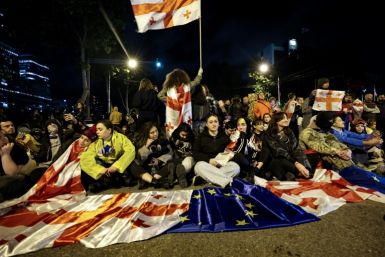IMF Insists on Building up Recession War-Chest, Yet Not Too High this Time
A higher financial firewall may not be necessary for now, according to International Monetary Fund (IMF) Managing Director Christine Lagarde, reversing her earlier calls to put up a deep war chest to combat threats of global recession.
In a statement, MsLagarde said on Thursday while the existing financial crisis still poses risks, "the needs now may not be quite as large as we had estimated earlier this year."
"Some of the dramas that we envisioned in 2011 and the very beginning of 2012 not only have not materialised but some good news has actually restored a little bit of the confidence," the IMF chief was reported by Reuters as saying.
She attributed the 'recovery' on the policy reforms implemented by key European economies that spurred the return of stability in the financial markets in the region, which at the start of 2012, was seen by IMF as headed for another round of recession.
The IMF at this time is reviewing the general condition, Ms Lagarde said, while stressing that the hazards indentified by the global lender in the first quarter of 2012 have largely been tempered by active intervention.
The need to raise more money to offset the impacts of the then looming financial downturn can be set aside for now, the IMF chief admitted.
"So we need to cautiously reassess, and are reassessing, to a lower number in terms of risk, which will bring me to probably reassess a lower number for the amount of additional funds the IMF needs," she added.
Ms Lagarde, however, reiterated her original stance that governments must be ready to step in and provide bailout when needed like in the case of Europe, which in March approved the setting up of rescue funds that would be utilised for important financial interventions.
The fund now carries as total value of more than $900 billion, Reuters said, and Ms Lagarde is hopeful that a similar global rescue fund could be set up and made ready for deployment in the event of financial crunches bearing down on economies across the globe.
Ms Lagarde clarified that the funds will not be used to solve the problems of European countries.
"(They) are helping themselves for the moment, but around the world we know there are countries that are facing hardship and will come knocking at the door of the IMF to seek some help and lending," Ms Lagarde said in an interview with Fox Business Network.
The IMF is focusing right now on helping the new governments that have emerged in the aftermath of the Arab Spring, which remains underway in the Middle East and North Africa, where international financial assistance were most needed, according to Ms Lagarde.
Ms Lagarde also reported that the financial upgrades she has been working on, much lesser this time, has so far attracted positive responses from Japan, Mexico, Poland, Norway and Sweden.
She admitted too that convincing the United States to further increase its contributions to Fund may not be achieved at all but reminded the world's largest economy that "the risk that looms largest is that sovereign and financial stresses return with renewed force in Europe."
"And the U.S. economy would be hurt if the crisis was developing in Europe," Ms Lagarde warned.






